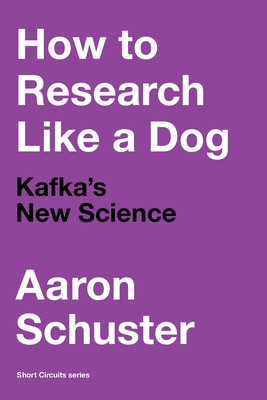
- We will send in 10–14 business days.
- Author: Aaron Schuster
- Publisher: MIT Press
- ISBN-10: 0262543540
- ISBN-13: 9780262543545
- Format: 15.6 x 22.8 x 2.4 cm, softcover
- Language: English
- SAVE -10% with code: EXTRA
Reviews
Description
A provocative book that proposes a new and suprising inspiration for philosophy today--the canine thinker from Kafka's story "Investigations of a Dog." Written toward the end of Kafka's life, "Investigations of a Dog" (Forschungen eines Hundes, 1922) is one of the lesser-known and most enigmatic works in the author's oeuvre. Walter Benjamin remarked that it was the one story he never managed to figure out. Kafka's tale of philosophical adventure is that of a lone, maladjusted dog who challenges the dogmatism of established science and pioneers an original research program in pursuit of the mysteries of his self and his world. Schuster revisits this text, using the canine as a guide dog through which to rediscover Kafka's fictional universe, while taking up the cause of this ingenious, possessed, melancholy, comical, and revolutionary thinker. Neither an exercise in literary criticism nor a traditional philosophical commentary, this charming and idiosyncratic book aligns itself with and develops the research program of Kafka's dog. It constructs an "impossible" system based on the fourfold division of nourishment, music, incantation, and freedom--or, stated a bit differently: enjoyment, art, institutions, and freedom. Schuster puts the dog in dialogue with psychoanalytic theory (Freud and Lacan), the history of philosophy (Plato, Diogenes, Descartes, Kierkegaard, German Idealism, Marx, phenomenology), and literature (Gogol, Melville, Flaubert, Cervantes, Lispector). Imagining the "Unknown University" that Kafka's new science calls for, the book enlists new comrades in the dog's struggle.EXTRA 10 % discount with code: EXTRA
The promotion ends in 17d.14:14:31
The discount code is valid when purchasing from 10 €. Discounts do not stack.
- Author: Aaron Schuster
- Publisher: MIT Press
- ISBN-10: 0262543540
- ISBN-13: 9780262543545
- Format: 15.6 x 22.8 x 2.4 cm, softcover
- Language: English English


Reviews